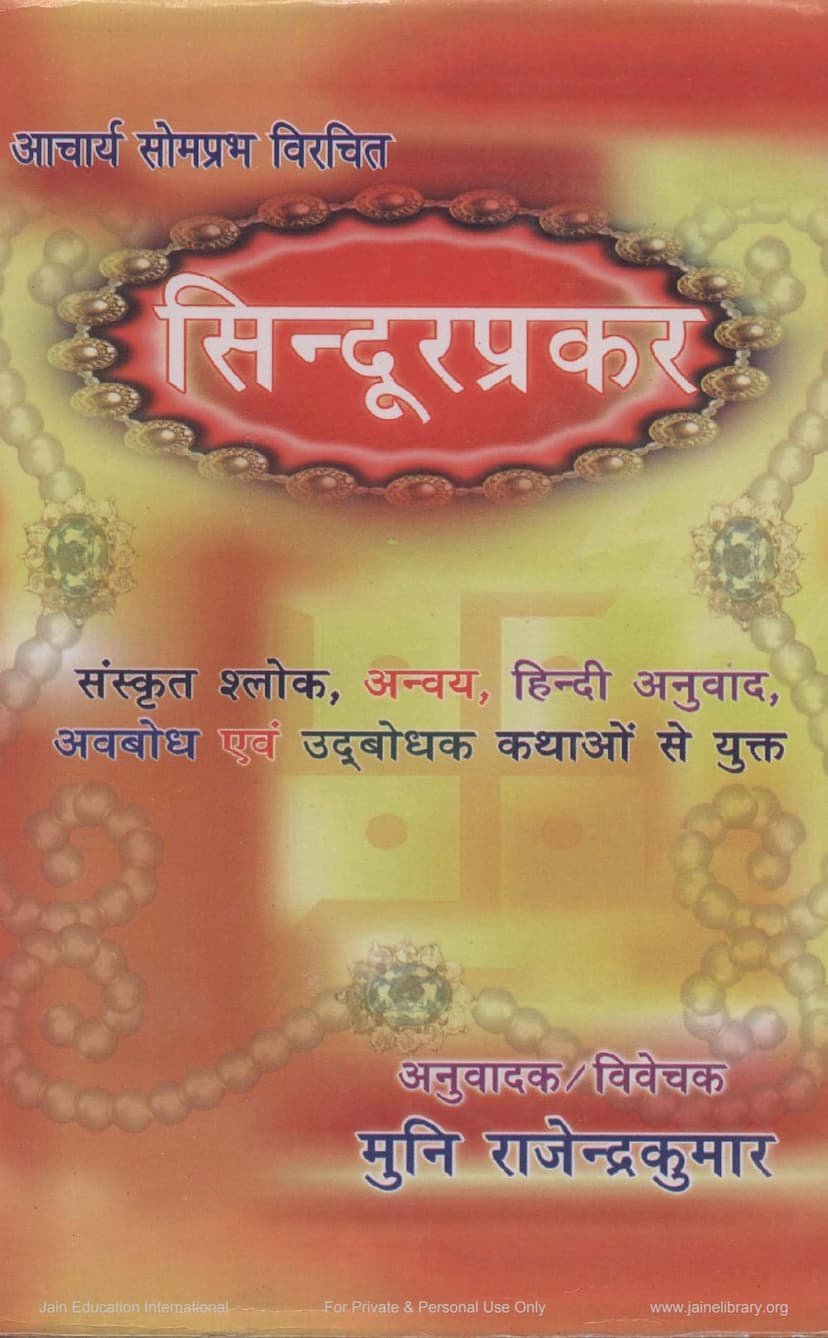Sindurprakar
Added to library: September 2, 2025

Summary
The "Sindurprakar" (also known as "Suktireemuktavali" or "Somashatak") is a Jain text authored by Acharya Somaprabhacharya, dating back to 1193 CE (V.S. 1250). This work, comprising 100 Sanskrit verses, is celebrated for its profound insights into Jain principles, particularly focusing on:
- Core Jain Virtues: The text elaborates on key ethical principles such as Ahimsa (non-violence), Satya (truthfulness), Asteya (non-stealing), Brahmacharya (chastity/celibacy), and Aparigraha (non-possession), among others, covering twenty-one chapters dedicated to these virtues.
- Spiritual Themes: It also delves into the rarity of human birth, the importance of Dharma (righteousness), and the path to spiritual liberation.
- Literary Excellence: The verses are composed in various meters, including Shardoolvikridita, Mandakranta, and Shikharini. The author's mastery over language is evident in the elegant wordplay, the innovative use of verb roots, and the rich, figurative language, all of which highlight his scholarship and poetic skill.
- Commentaries and Translations: The "Sindurprakar" has been the subject of numerous commentaries. Notably, Charitravardhan Suri wrote an extensive commentary of 4800 verses in 1446 CE (V.S. 1505), followed by Harshakirti Suri's commentary in 1503 CE (V.S. 1660). Banarasidas translated the work into Hindi poetry in 1634 CE (V.S. 1691).
The presented edition, translated and elucidated by Muni Rajendrakumar, is described as a scholarly and didactic work, filled with detachment (Vairagya). It aims to provide comprehensive understanding through Sanskrit verses, their Sanskrit grammatical analysis (Anvay), Hindi translation, explanatory notes (Avabodh), and illustrative stories (Udbodhak Kathayein).
The book is published by Jain Vishva Bharati, Ladnun, and is dedicated to the memory of Shri Dilbaghray Jain and Shrimati Ramvati Jain. It includes blessings from Acharya Mahapragya, who praises Muni Rajendrakumar's diligent work in making the text accessible and comprehensible to a wider audience. The translator's journey, inspired by saints and guided by the blessings of Acharya Tulsi and Acharya Mahapragya, is also detailed, emphasizing the inclusion of grammatical analysis, etymological discussions of Sanskrit roots, and a glossary.
The work is structured into two main parts: the first part presents the Sanskrit verses with Anvay and translation, while the second part offers explanations (Avabodh) and illustrative stories related to each chapter. The appended sections include an alphabetical index of verses, grammatical commentary, a dictionary of Sanskrit verb roots used, and a glossary of terms.
In essence, the "Sindurprakar" is a revered Jain text that blends philosophical depth, ethical teachings, and poetic artistry, aiming to guide readers towards spiritual enlightenment and virtuous living.